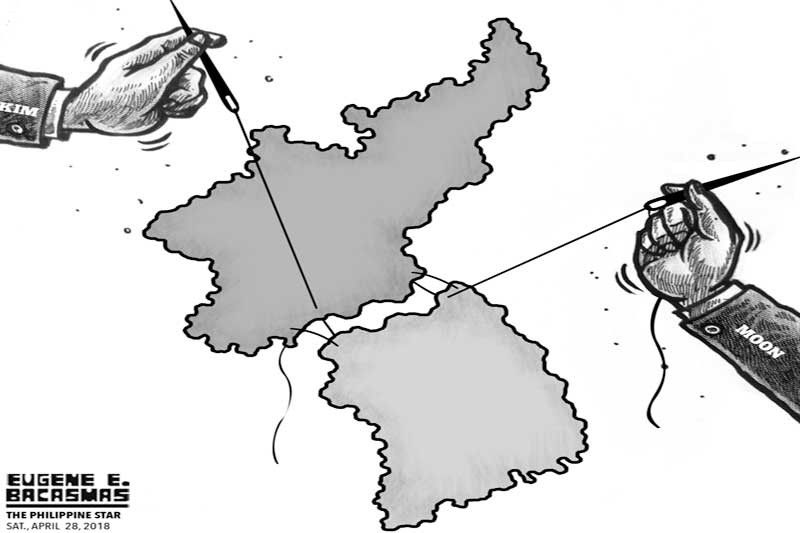EDITORIAL - Planting peace, prosperity

The two leaders shook hands and embraced, added soil from mountains in their countries to a tree planted in 1953, and dined on beef sourced from a ranch symbolizing bilateral cooperation. After several hours of talks yesterday, South Korean President Moon Jae-in and North Korean leader Kim Jong-un announced that the war on the Korean peninsula is all but over, with details and formalities to be approved within the year.
The progress on the peace front unfolded at such lightning speed that pundits cautioned about raising hopes too much. Until early this year, Kim had the world on edge with his missile tests and promises of more to come. Yesterday, he asked his South Korean counterpart and, technically, leader of an enemy state why it took them so long to reach out across the demilitarized zone that divided their countries and work for “a new era” of permanent peace.
Previous peace initiatives in Korea ran into roadblocks. Yesterday’s events marked the most significant progress yet in efforts to end one of the world’s longest running armed conflicts. The Philippines has a special stake in seeing peace on the Korean peninsula: Filipino troops assisted South Korean forces during the Korean War from 1950 to 1953. And the Philippines can be drawn into armed conflict in case tension escalates on the Korean peninsula.
In the truce village of Panmunjom in South Korea yesterday, Kim reportedly promised Moon that he “won’t interrupt your early morning sleep anymore” with ballistic missile tests. Even if it was said in a lighthearted way, Moon – and the world – are expected to take the North Korean leader at his word.
Near the pine tree planted during the 1953 Korean War armistice, a plaque signed by the two leaders was unveiled yesterday, declaring, “We plant peace and prosperity.” The world hopes the tree will enjoy robust growth.
- Latest
- Trending




























